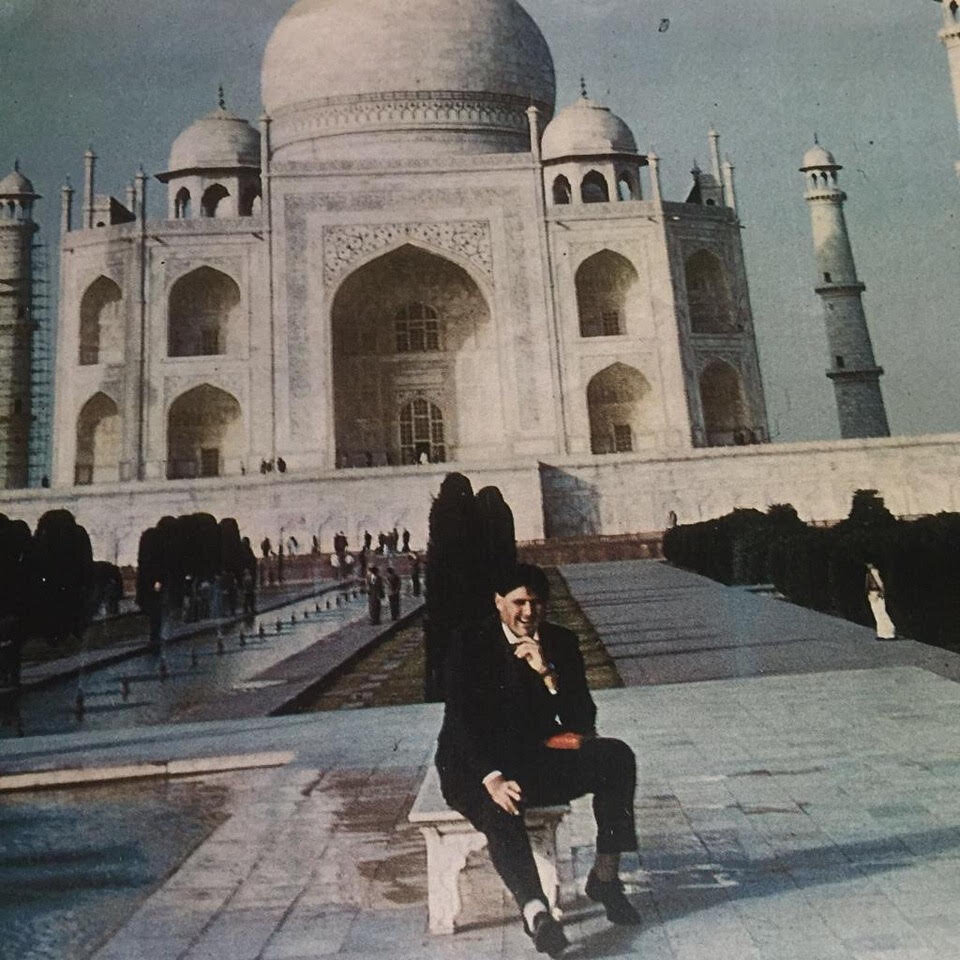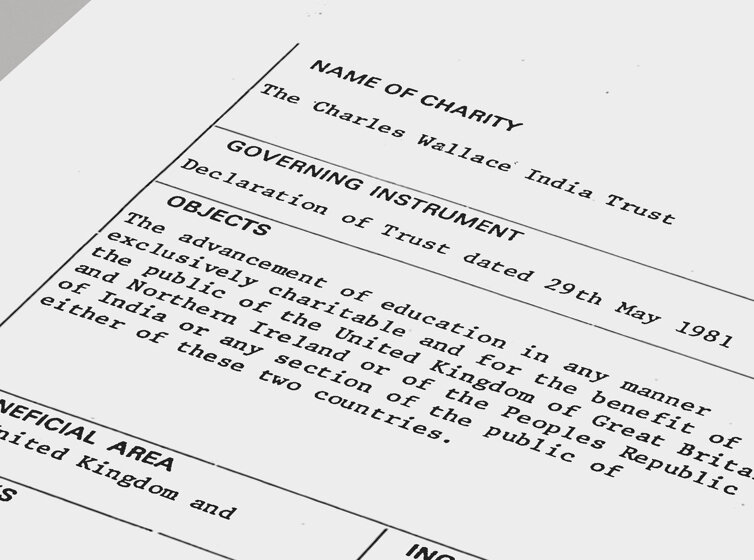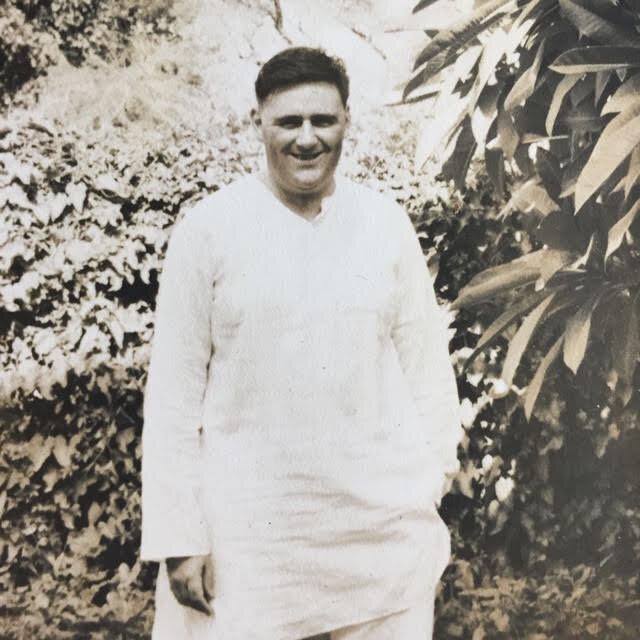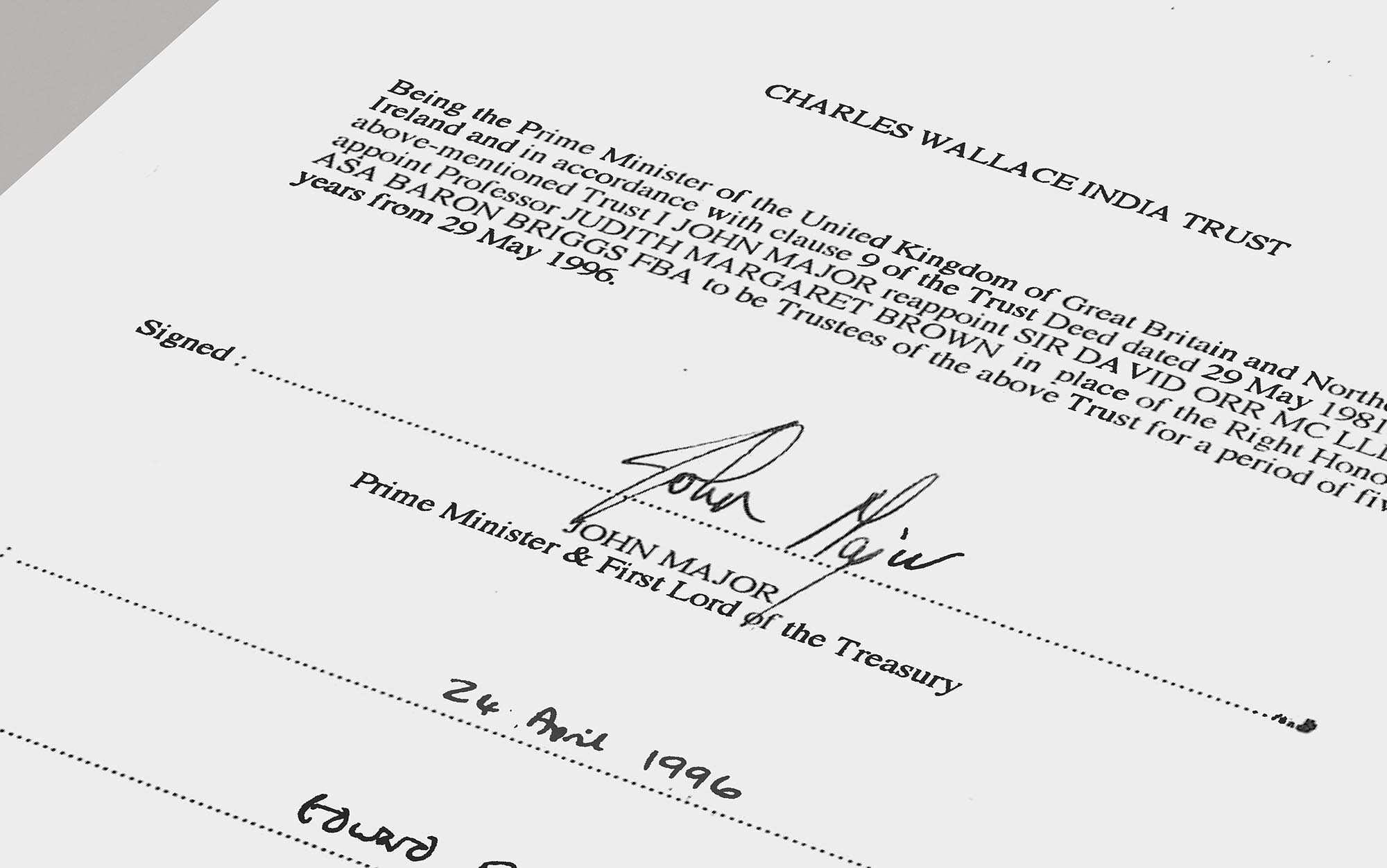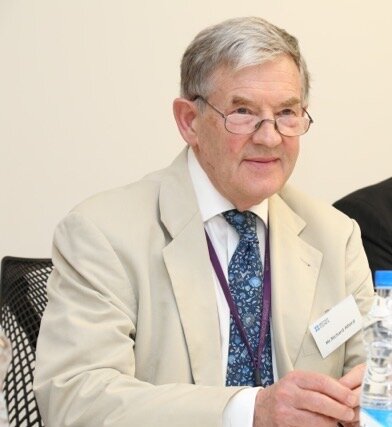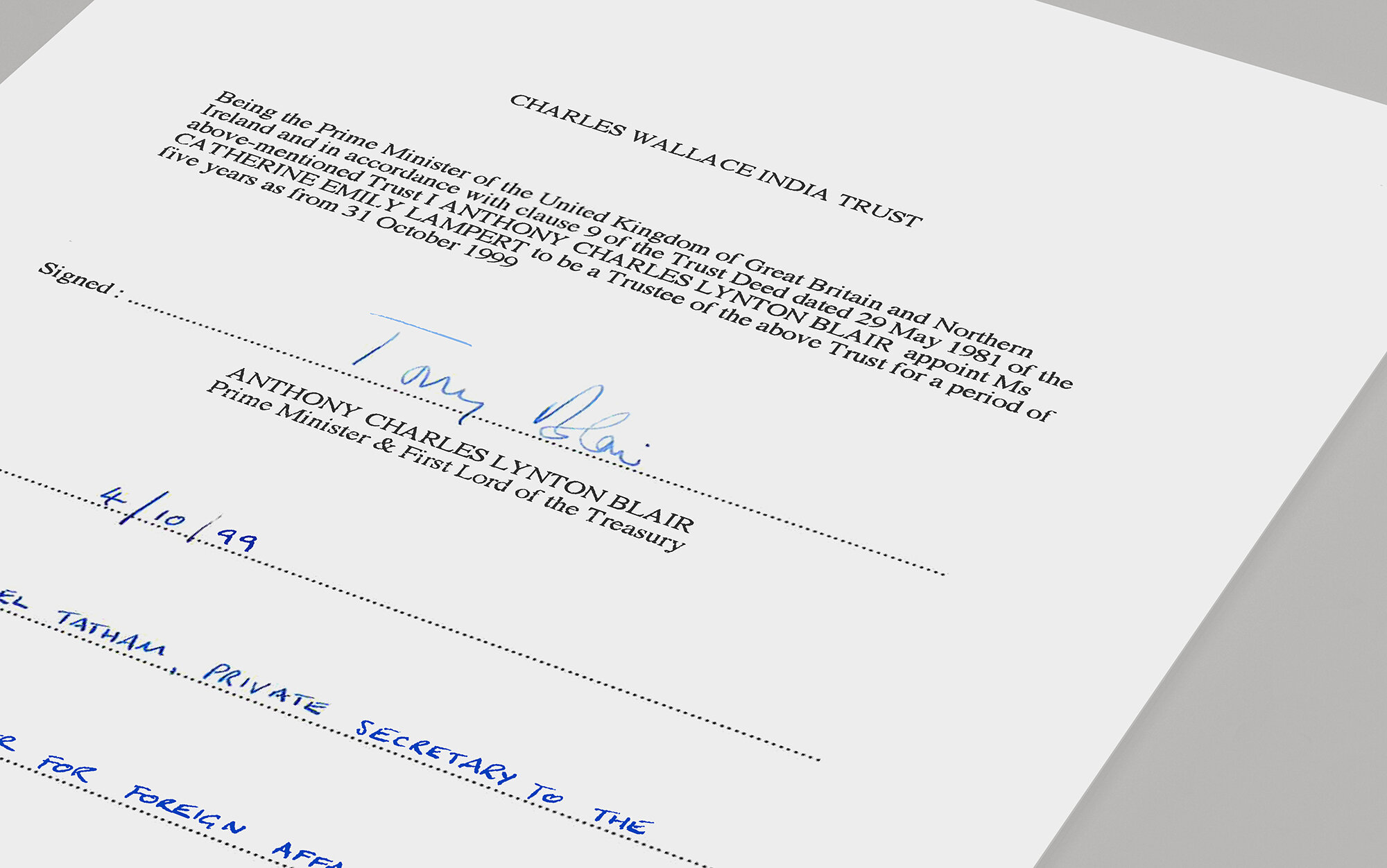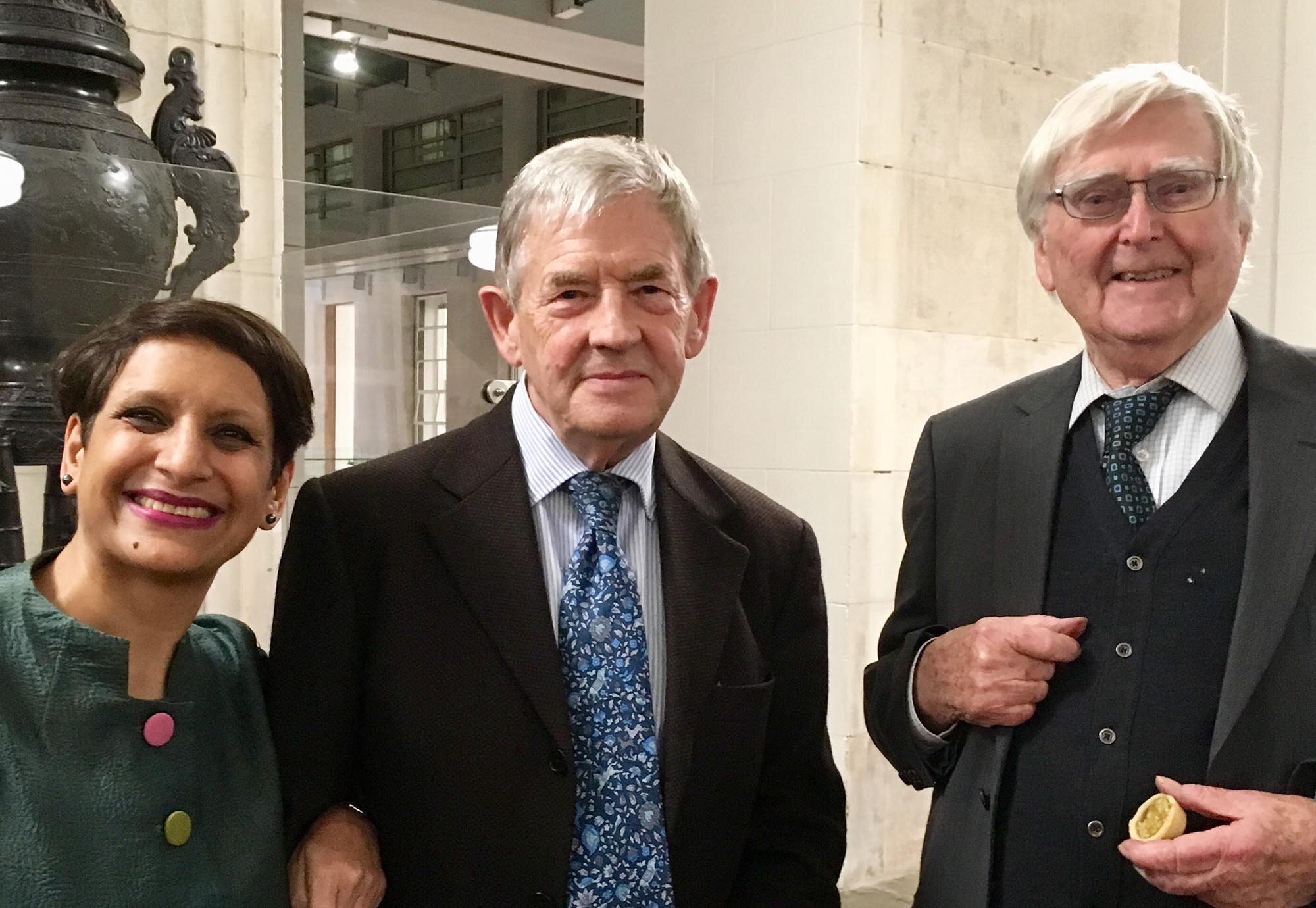
The Charles Wallace India Trust was established in 1981 as a Registered Charity (number 283338). The Trust gives grants to Indian nationals, living in India and studying or working in the arts, heritage conservation or in the humanities.
Currently there are four Trustees and a Secretary who organises the work of the Trust. CWIT's auditors are Field Sullivan, Chartered Accountants, and our investment portfolio is managed by Cazenove Capital. Over the past few years, Trustees have been concerned about the environmental impact of CWIT's work and this is now a standing item on the agenda. CWIT has commissioned a baseline Carbon Audit which will be updated from time to time and in 2022 the trustees decided to move our funds into Cazenove's Sustainable Multi-Asset Fund and invest in renewable energy sources and in other 'greener' and more socially useful ways.
Previous Secretaries: Richard Alford CMG OBE (2003–2018); Frank Taylor CBE (1993–2003); and the late Roddy Cavaliero who was the first Secretary between 1981–1993.
CWIT was established as a UK charity in 1981. We marked the 40th anniversary of the Trust in a number of ways, notably by collecting stories from those who know CWIT and the people who have helped to shape CWIT over the decades. Would you like to know more about Roddy Cavaliero, the former Deputy Director General of the British Council who was the first Secretary?
Who was Charles Wallace?
Charles Wallace was born in Calcutta on 21 November 1855, the elder son of Alexander Wallace an East India merchant and his wife Helen. Educated at Framlingham College in Suffolk he began his business career in 1874 in the London office of a Calcutta mercantile firm, Shaw Finlayson, starting on the bottom rung of the ladder.
In 1886, in partnership with David Shaw, Charles Wallace opened Shaw Wallace’s doors in Calcutta, trading in tea, Bengal silk and piece goods. By 1891 Shaw Wallace had expanded through a number of takeovers, moved to bigger premises and also acquired the agency in India for Burmah Oil, importing kerosene from Rangoon.
In 1892 Charles Wallace left Calcutta for London. He had a reputation as a capable, dynamic businessman with an independent turn of mind. While highly successful he was not always an easy character to work with, but he had an extraordinary sense of humanity and generosity. This inspired him to leave his modest fortune, after a number of personal bequests to colleagues and household staff, and an annuity to the young actress friend of his daughter to help her at the start of her career, to his family for one generation, and–“thereafter to be divided between the British Treasury and the Treasury of British India… Because I hold the view that subject to the possessor’s right during his life to the enjoyment thereof and to the making of adequate provision for his children… all possessions great or small being acquired from or through the people as mine were should return to the people.”
Following his return to London and through his connection with Burmah Oil he joined the board of the newly formed Anglo Persian Oil Company. He continued his close involvement with Shaw Wallace.
He was deeply saddened by the death of a son in the First World War. He and his wife Ellen separated, and a daughter kept house for him. His health declined and he lost his sight. He died in London of kidney failure on 2 August 1916, aged 60.
In 1981, following the death of his immediate successors, a Memorandum of Understanding between the Indian and UK governments was signed by the two Prime Ministers, James Callaghan and Morarji Desai and the bulk of Charles Wallace’s residuary estate was divided equally between India and the UK. The balance of the estate was divided proportionately between the UK an India, Pakistan, Bangladesh and Burma and separate Charles Wallace trusts were established for each country. The Charles Wallace India Trust was set up to fulfil the spirit of its benefactor’s will and to ensure that his intentions were met. India’s share helped to establish INTACH and its grant giving tradition.








